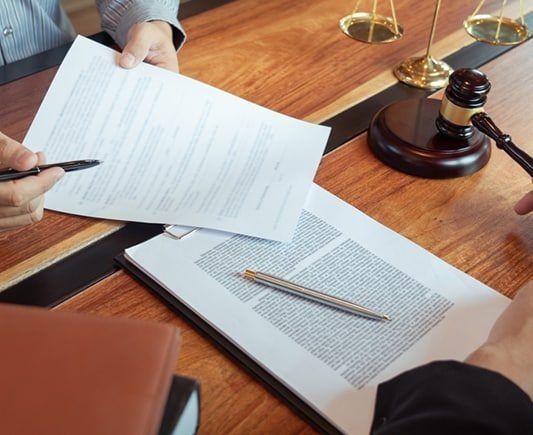Property Transfer Professionals
Enduring Power of Attorney on the Central Coast
With over 55 years' combined experience and full AIC accreditation, our licensed Central Coast conveyancers provide clear, transparent service with no hidden fees.
Legal Empowerment
Authorising Decisions with Confidence
An Enduring Power of Attorney is a legal document that allows a trusted person to make financial or personal decisions on your behalf should you become unable to do so. At Property Transfer Professionals, based on the Central Coast, we assist clients in preparing and executing Enduring Power of Attorney agreements that meet all legal requirements in New South Wales. These documents ensure that your chosen representative, known as your attorney, has the lawful authority to act in your best interests, even if you are unavailable or lose decision-making capacity.
This type of arrangement is particularly valuable in conveyancing, as it allows property transactions to proceed without you being physically present in the state. Once your appointed attorney has completed 100-point identity verification, electronic signing can also be used to streamline the process.
With over 55 years’ combined experience and licensed Justices of the Peace on our team, we make the creation and witnessing of legal documents straightforward, transparent, and compliant. To learn more, contact us today on (02) 4353 1340.
Reach Out Today
Contact Us
Thank you for contacting Property Transfer Professionals.
We will get back to you as soon as possible.
Oops, there was an error sending your message.
Please try again later.
Need Help?
Frequently Asked Questions
What is the difference between a Power of Attorney and an Enduring Power of Attorney?
A Power of Attorney authorises someone to act on your behalf for a set period or specific purpose, such as managing finances while you are overseas. An Enduring Power of Attorney, however, continues to be valid even if you lose mental capacity. This distinction makes it an important safeguard for long-term decision-making and asset management.
Who can be appointed as an attorney under an Enduring Power of Attorney?
Any person over 18 years of age who understands the responsibilities of the role can be appointed. This may include a family member, friend, or professional associate. The person must be willing and able to act in your best interests, and it is strongly recommended to choose someone you trust to manage financial and legal matters responsibly.
What documents can a Justice of the Peace witness or certify?
A Justice of the Peace (JP) can witness signatures on statutory declarations, affidavits, and other legal forms. They can also certify copies of original documents as true and accurate. JPs play an essential role in ensuring legal documents are authentic, properly executed, and accepted by government agencies, courts, and financial institutions.
Our Process
Providing Legal Accuracy & Clarity
Setting up an Enduring Power of Attorney requires careful preparation to ensure the document remains valid and enforceable under NSW law. The appointed attorney must be over 18 years of age and capable of understanding the legal responsibilities associated with their role. The document specifies which decisions the attorney is permitted to make, such as managing property, paying bills, or finalising a property transfer, and when their authority begins.
Before execution, a qualified witness, such as a Justice of the Peace or solicitor, must confirm that the principal fully understands the effect of the document. Once witnessed and signed, the Enduring Power of Attorney can be registered if required for property dealings. Having Justices of the Peace on staff allows for prompt witnessing and certification of statutory declarations and affidavits. This structured, lawful approach ensures that all documentation is prepared correctly, protecting the interests of both the principal and their appointed attorney.








